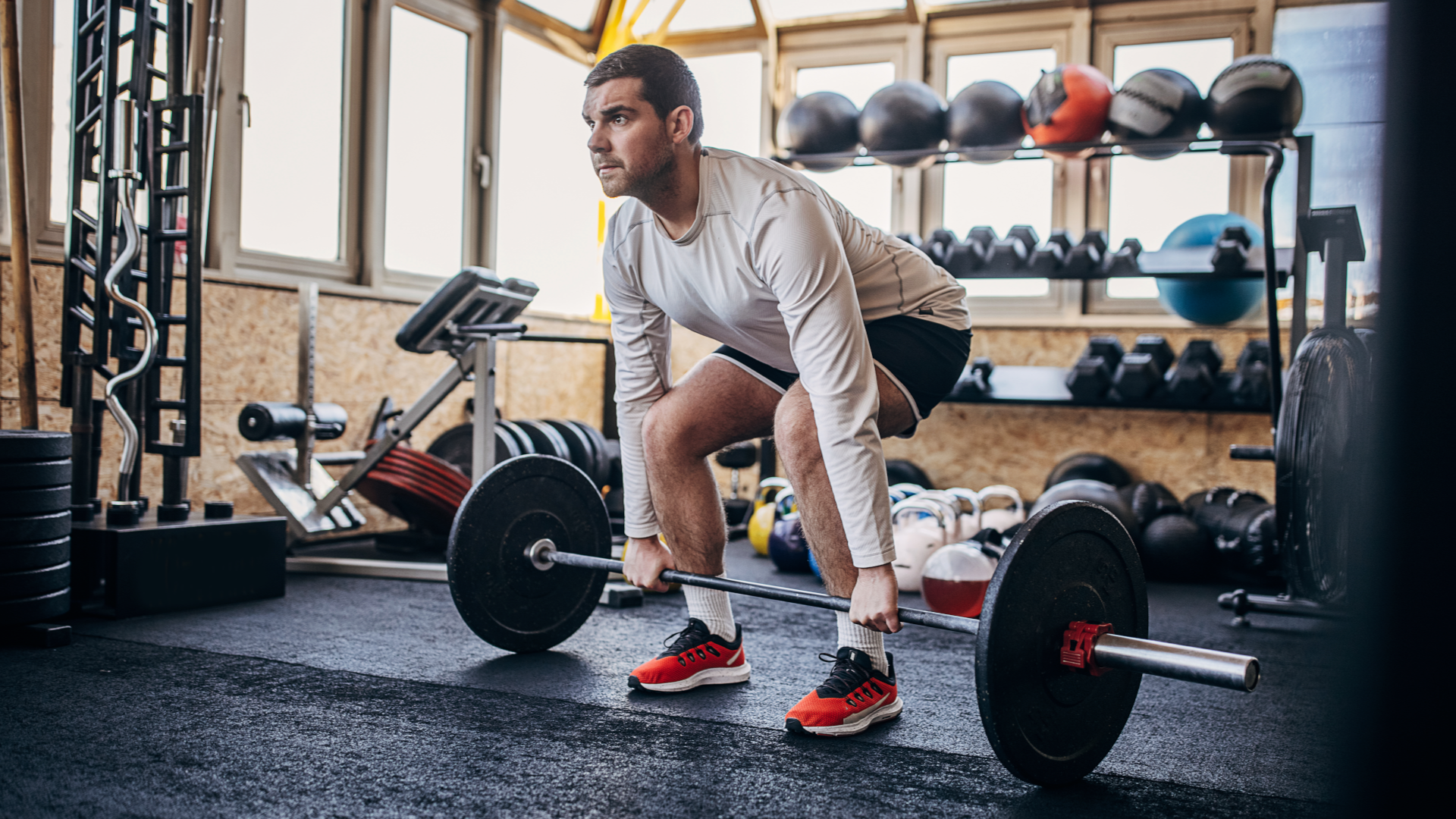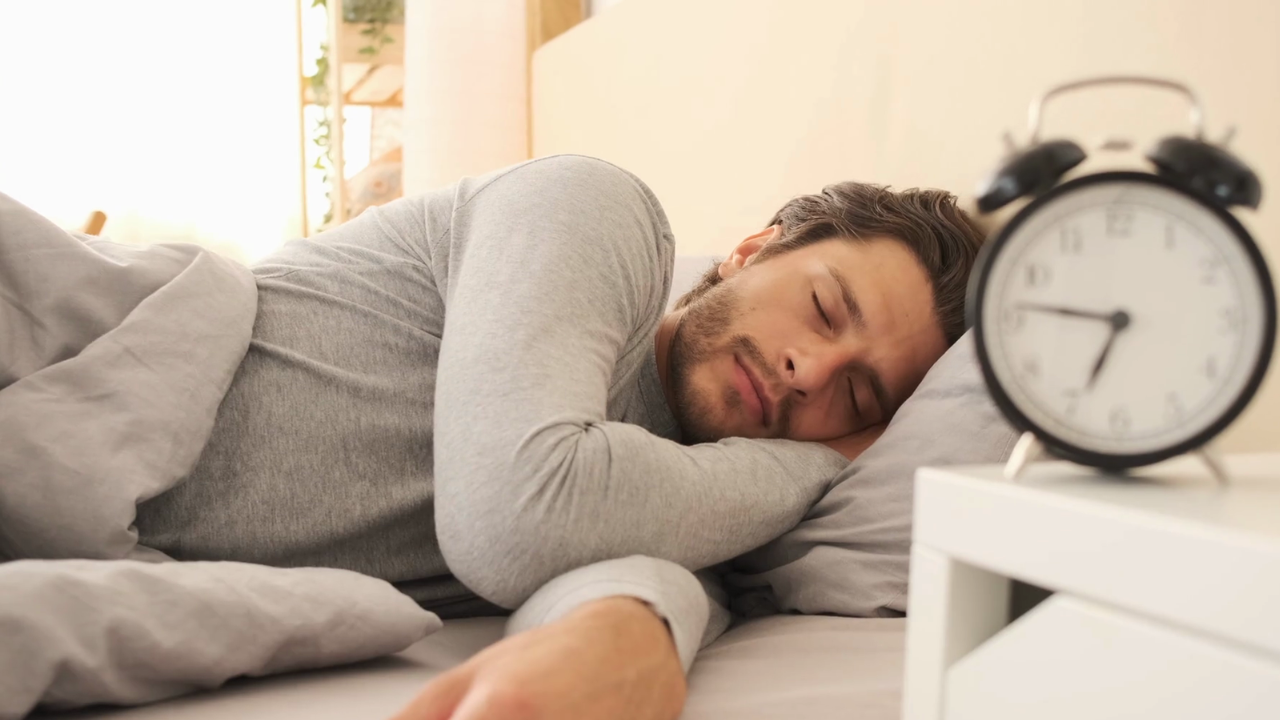A Sports Scientist says these ‘two underrated factors’ are sabotaging your gains
It’s got nothing to do with what you’re doing inside the gym or kitchen


When struggling to build muscle, our minds immediately turn to the mistakes we may be making in the gym – like are we doing the right workout split, maybe we’re not taking enough rest time, or possibly leaving too many reps in the tank.
While all of the above is important, what happens on the gym floor is just one part of the puzzle. What happens outside of it is arguably more important, and Sports Scientist Menno Henselmans, has highlighted two overlooked factors that could be stalling all your hard work.
In a recent YouTube video he says stress and sleep are the two top underrated factors that can affect muscle growth, but their negative effects are often overlooked because they’re both closely related to our mental health.
How does stress affect muscle growth?
We all understand by now that recovery is just as important as training when it comes to making real progress in the gym. But Henselmans says that mental stress puts our recovery on the back burner.
“Stress effectively functions as an off switch for reproduction, digestion, repair and growth,” he says. “It puts your body in sympathetic dominance – fight or flight mode – and that shuts off parasympathetic dominance, which is rest and digest mode. Stress energises your body to be ready now.”
When you're in that stressed-out state, your body releases hormones like cortisol and adrenaline. While cortisol isn’t inherently bad – it's part of your natural stress response – chronically elevated levels can work against your goals.
“In this case you’re permanently suppressing repair, growth and digestion which, of course, are all vital for muscular recovery,” he says.
Get all the latest news, reviews, deals and buying guides on gorgeous tech, home and active products from the T3 experts
Henselmans also points out that stress makes it harder for fat loss and sticking to your diet, as it increases the urge to self-medicate with comfort foods, making it more difficult to stay on track.
How to solve stress

Henselmans says that most of us turn to ‘passive coping strategies’ – these are strategies that help us disengage from the stressor, like drinking, talking things through with a friend, or watching our favourite TV show.
“But research finds that active coping strategies are much more effective,” he says. This is where we try and address the problem head-on to solve it. “This is what stress wants you to do, it energises you to solve a current problem in your environment, so if you have a problem with somebody, talk to them.”
Lower stress, less interference with muscle protein synthesis, better recovery, more gains.
How does sleep affect muscle growth?
Sleep might not be the sexiest topic in fitness, but it’s still one of the most overlooked. While many people obsess over hitting their macros or getting enough protein, sleep often gets pushed aside, even though Henselmans says it’s just as important.
“Research shows that sleep deprivation directly reduces muscle protein synthesis, including myofibrillar muscle protein synthesis,” he says. Both of which are important for helping build and repair muscle after exercise.
He highlights a study published in the Journal of Sports Medicine and Physical Fitness, which found that lifters who prioritised sleep not only gained more muscle mass than those who didn’t, but also lost significantly more fat.
Lack of sleep doesn’t just blunt muscle growth, it also messes with anabolic hormones like growth hormone and testosterone, which are released during sleep to drive muscle recovery and growth.
He also adds that poor sleep can disrupt your energy expenditure, appetite, and stress levels, all of which make it harder to stick to your training and nutrition goals.
“Sleep deprivation is basically bad for everything, you just function as a shadow of your potential self.”
Optimise your sleep quality and you’ll directly support better recovery, improved body composition, and faster gains.
How to improve sleep

There are lots of things you can do to help you get a more restful night's sleep, from going to bed consistently at the same time each night to reducing your phone time before bed. Creating a calming environment and getting your mind into a relaxed state will help alert your body that it’s time to wind down.
If you train in the evening, avoid having a pre-workout (unless it's a non-stimulant one), as the caffeine content can make it more difficult to fall asleep. Also, in regards to training near to bedtime, multiple studies have shown that moderate intensity exercise close to bedtime doesn’t tend to disrupt sleep, however, high-intensity exercise can. So, try and plan your workouts accordingly.

Bryony’s T3’s official ‘gym-bunny’ and Active Staff Writer, covering all things fitness. She is a certified personal trainer and also a part-time fitness instructor. In her spare time, you will find her in her natural habitat - the gym - where her style of training is a hybrid of bodybuilding and powerlifting. Bryony loves writing about accessible workouts, nutrition and testing innovative fitness products that help you reach your fitness goals and take your training to the next level.
You must confirm your public display name before commenting
Please logout and then login again, you will then be prompted to enter your display name.